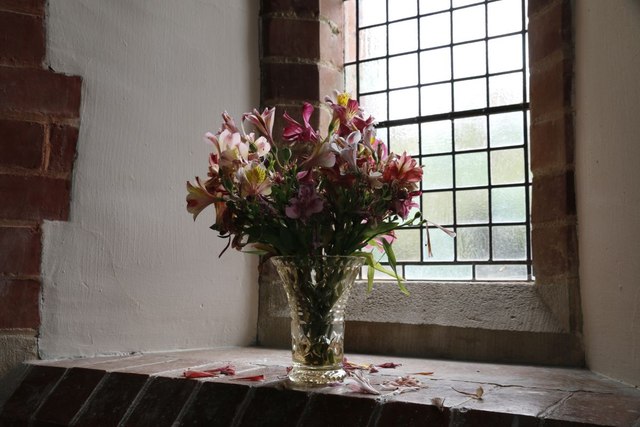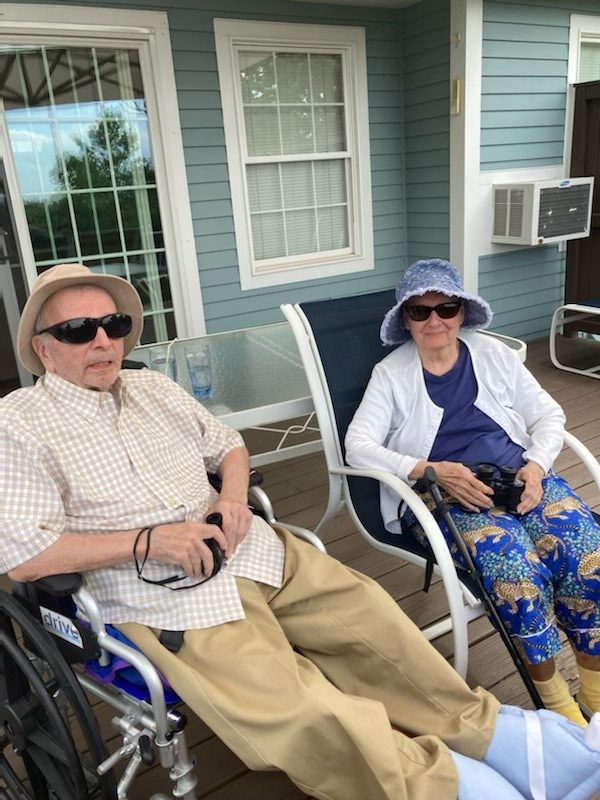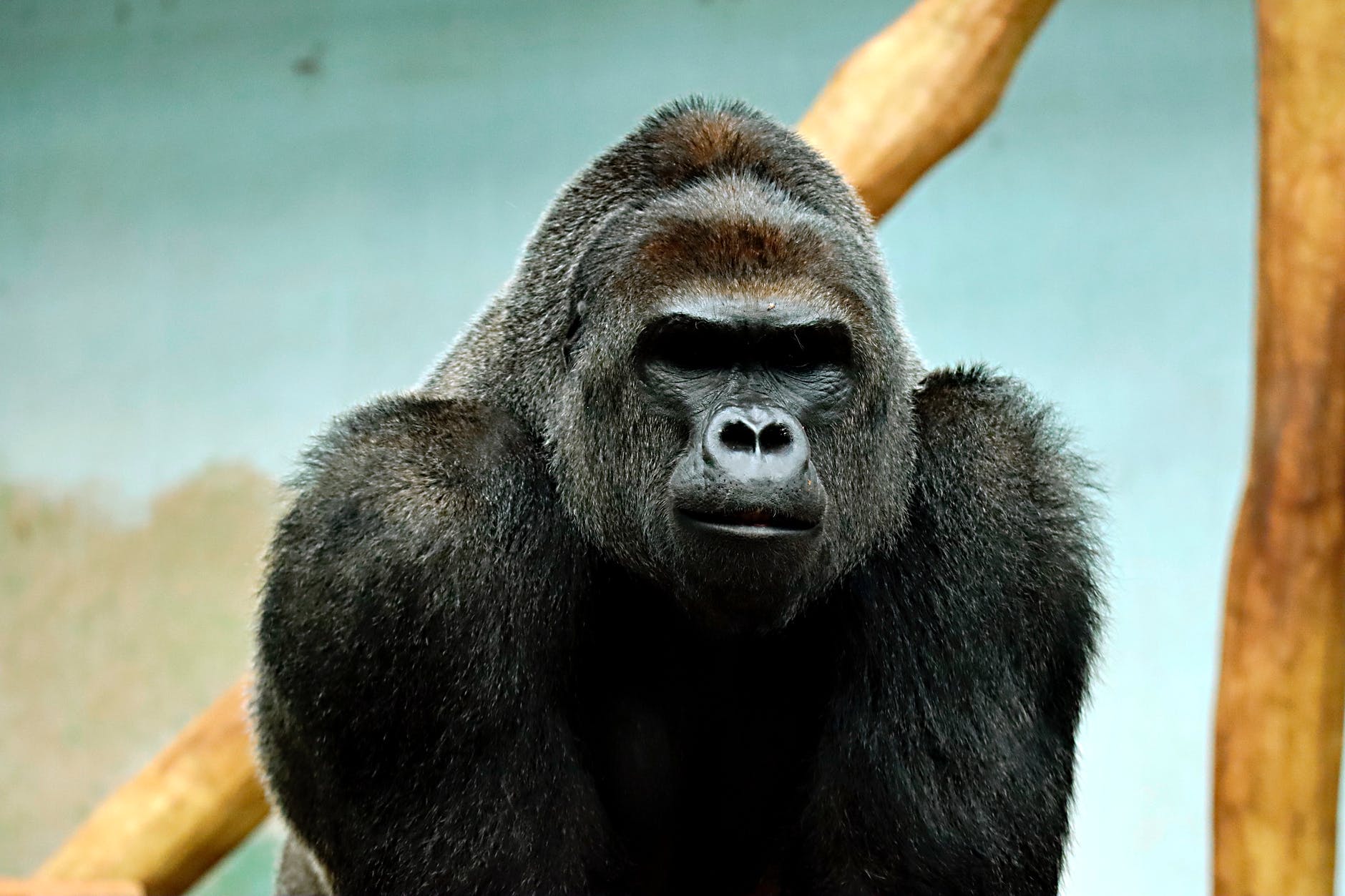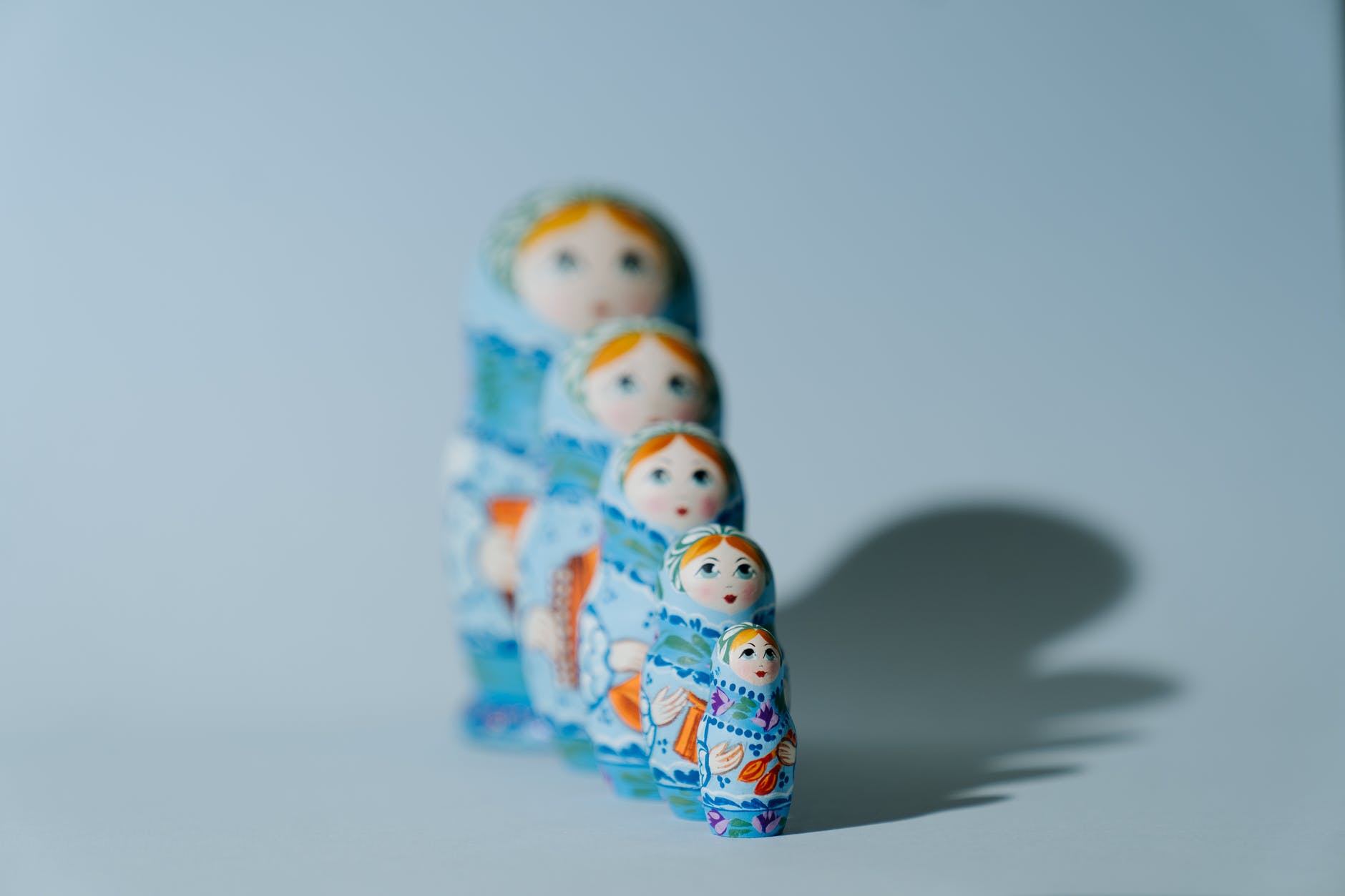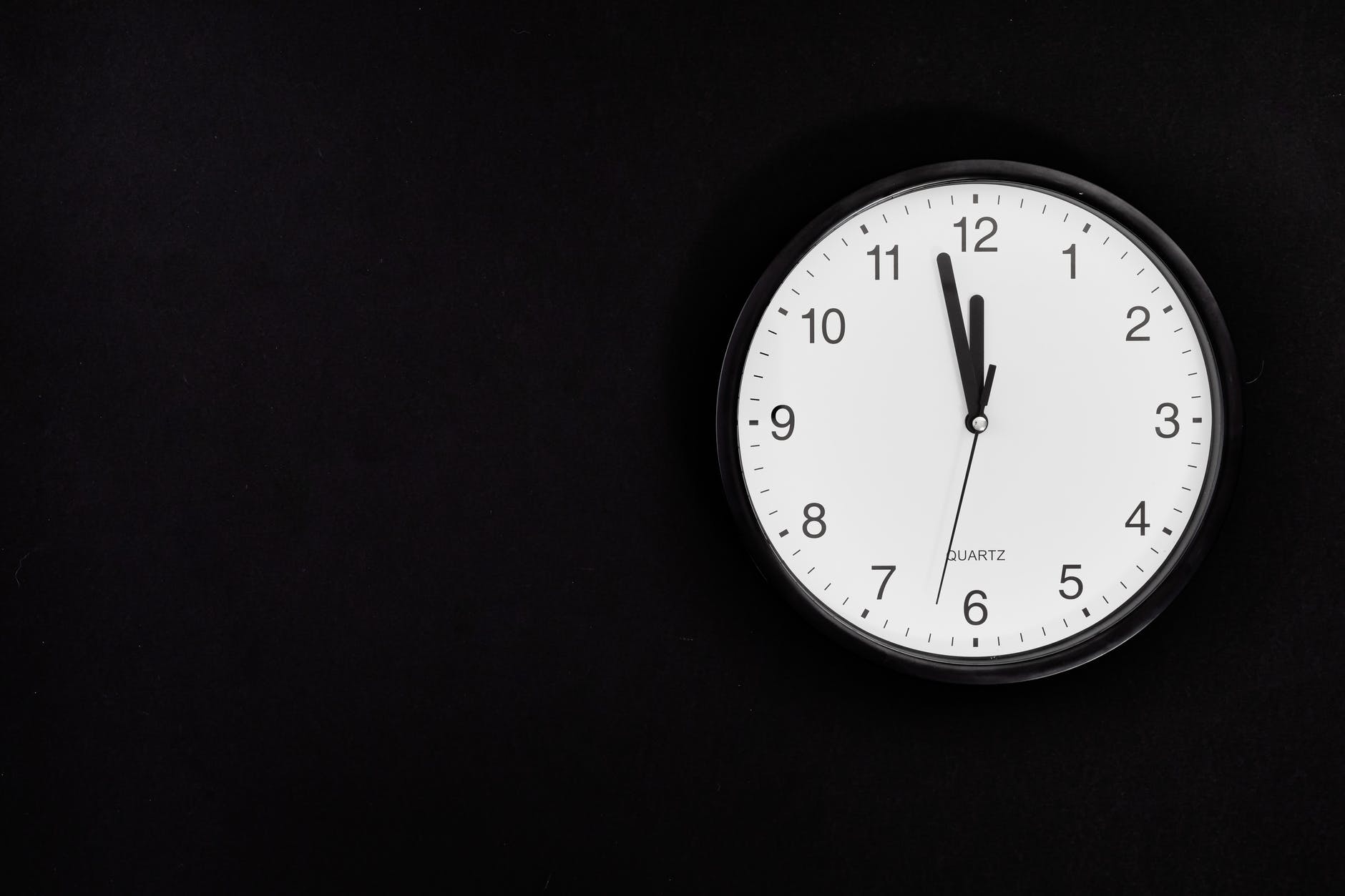One surprising revelation in the wake of my father’s passing
Continue readingA Turn of the Page
My dad finally passed away early this morning, which, of course, causes that same “grielief” we felt when Mom’s time was up a mere six months ago.
His decline was so agonizingly slow, marked by such infinitesimal notches downward. Every time we thought he was making the step that would mark a turn to The End, he would level out, his body continuing to chug along. Time and again, even as his corporeal self withered and the person we suspected was still inside slowly disappeared, that body kept going.
Seven months ago, Tim and I made plans for a long, tropical vacation in early February. Because I was away when Mom passed (my sister left to manage in the immediate aftermath), she and I discussed this vacation after that experience, agreeing that there was No Way He Would Still Be Around By Then.
Ha.
As the months slowly passed and it seemed that the ground itself might have to rise up to swallow what was left of him before he finally took his leave, I began saying, only slightly jokingly, that it would probably happen while Tim and I were even farther away. We joked about it. But, amazing, indescribably awesome sister that she is, she told me that we had her blessing to stay for the entire trip if it were to happen on her watch.
Lo and behold, here we are. She kept me apprised as he took what marked his final turn earlier this week, and through his exhausting descent over the past few days.
She and her husband are living angels, taking turns being with him, administering his comfort meds every other hour, 24 hours a day; singing to him, stroking his hair or holding his hand. Letting him know he was so loved; what an incredible father he was to two adopted daughters whose lives were so shaped by his quiet guidance and support.
As grueling as this past four years has been, I don’t think I’m speaking just from the emotion of this moment when I say it has also been the most meaningful four years of my life. It has brought my sister and me, who were fairly close before, so much closer. It has made me appreciate my life in ways I might never have, had I not been yanked out of my “normal” and tossed around in the swirling currents of parental dementia.
At a moment when I’m vacillating between grief and relief, between surprising upwellings of tears and smiling at the kindness of friends and family, the umbrella over all of it is my gratitude: to my dad for a list of things that will require a separate writing session, to my sister and her husband, whom I feel with every breath I’m drawing today, and to the Universe itself for putting us through this transformative disease.
Stay tuned – there will be more to come.
“Dadding”
A frank update on dad, and a philosophical look at a life in filial limbo
Continue readingLife, and Death, with Dementia
Sharing details about dementia’s progression in a loved one can be tricky. But it feels important for me to share, especially right now.
Continue readingLet’s Talk about that 400lb Gorilla
Everybody has one
And most of us have the same Gorilla that lurks around the periphery of our lives: one we all have to face but no one wants to talk about. If you’re a regular reader of my blog, the Gorilla’s identity won’t come as a huge shock.
Gorilla, thy name is Death.
Not only do we all have to face it for ourselves, we have to face it – survive through it – for many of those we love during our lifetimes. When someone we love dies, we have to find a way to pick our broken selves up and continue living, despite the pain – the often searing, indescribable pain – and the gaping hole that death has left in our lives.
We all understand – at least intellectually – that death is the sole, constant, unavoidable certainty that not one of us, rich or poor, can escape. (Yet. God forbid.) And yet, as a culture bent on “self-improvement,” the one thing that happens, predictably, over and over, day in and day out, every single day, literally thousands of times a day, we mostly SUCK at.
I have a simple theory about why that is, though I will save that for a future missive. In fact, I have a lot of thoughts on this topic. I’m still trying to organize all of them in a way that makes this, one of the most taboo subjects in our culture, compelling, accessible, and engaging in a way that puts our 400lb Gorilla on a diet for the ages, and shrinks it down to something we can face, and even embrace, in a healthy way.
Not now. Not today.
We know it’s going to happen to us eventually, but not today, right? So we don’t have to think about it. We don’t have to deal with it. Not today. Shouldn’t we be focused on more important things, like that big meeting? What to do about that package that got ripped off from our front porch? Making sure the rent or mortgage gets paid on time?
It’s a neat trick our minds play on us – when we fear something, we avoid it. The avoidance allows us to fool ourselves into thinking that it doesn’t exist, so the immediate fear responses go away.
We distract ourselves with the endless array of enticements served up on the platter of our ever-ready-to-serve corporate/consumer complex. With social media. With comparing ourselves to everyone else, both consciously and unconsciously. Better keep up. Or else.
I’m not in any way saying that we shouldn’t, or don’t have to, focus on those “more important” things. But I am saying that if we aren’t willing to think about, talk about, and really face the inevitability of death, we’re sitting ducks for all the distractions our world has to offer. And that’s where we really start to lose.
Our fear of death is ruining our lives
How many times do we have to see the sad wake of the death of someone important in the life of a friend or acquaintance – the admonitions to tell your friends and family how important they are to you; to live every day as if it were your last; that you never know when it’s going to be your time, or theirs? It’s always so crystal clear when it happens close to you.
And yet. Our ability to continue to live that way is inversely proportional to how close to us the death event happened to be. We slide, too easily, back to worrying more about how we look in a selfie than what will happen to everyone in our lives if we’re unlucky enough for today to be our last day.
Billions of dollars in our economy are taken in by manufacturers of youth-“preserving” goods and services to thwart death and everything associated with or suggesting its existence. Worse than the money is the time. The insidious, creeping seconds that become minutes that pile into hours of our days; hours that we lose down rabbit-holes of self-absorption. Healthier, better-looking, stronger, fitter . . . Keep up with the Joneses – better cars, a nicer house; more, more, more.
Not that we shouldn’t want to better ourselves – getting or staying healthy, for example, is important for many more reasons than simply staving off death. But the cultural obsession with all of it is both symptom and root cause.
Whether we recognize these activities as a symptom of the fear of death or not, ultimately, that’s really what it’s about. And this collective superficiality, I would argue, is a major cause (not THE major cause, but one of them) of our spiraling issues with mental health, substance abuse, even just the vague, lurking malaise so many now suffer.
Never mind the practical negative impact on families
My current set of life circumstances force my sister and me to confront the notion of death every day. Regular readers know that both of my parents have dementia; dad has been on hospice for nine months, and a low-angle trajectory towards death, for four-plus years now. Mom is currently experiencing a period of steep decline in cognitive function.
Because I write about the realities of this world, I hear from a lot of readers about their own challenges with loved ones in decline. But the people I hear from also share stories of alarming dissent and discontent from their family members regarding their situations and the painful impact of denial. See if either (or both) of these two, all-too-common, stories sound(s) familiar to you:
1) Unprepared “patient”
Older parent or loved one has been experiencing some issues (health, cognitive decline, both, whatever). One or more children or other loved ones notice(s) and attempts to discuss with the “patient.” Patient does one or a combination of the following: brushes it off, argues, denies anything is wrong; says they don’t need any help; refuses to engage in any meaningful way.
Eventually, of course, the situation declines to the point where denial by the patient is no longer really possible. Sometimes this is a slow, painful downslope. Often, it’s one which, had frank conversations occurred beforehand, mitigating care and other interventions could have been provided, lessening the pain and suffering for everyone: patient and loved ones, physical and/or emotional. Other times, unfortunately, it takes the form of something “sudden” and catastrophic (major cardiac event, stroke, etc.), leaving patient unable to direct their own care.
Thus unprepared, loved ones and caregivers are left to guess at care (and yes, end-of-life) preferences, often leading to . . .
2) Warring siblings/relatives
Oh, let me count (just a few of) the ways:
- fights over whether dad is really (fill in your condition of choice) and why he does/doesn’t need more help;
- battles over housing situations and whether or not safety is a concern;
- selfish squabbles that really boil down to spending often-limited resources on care (which – gasp – are essentially about “what’s going to be left for me?!“);
- re-emergence of decades-old, but impossibly ingrained childhood pecking-order rivalries;
- barely-disguised, seething anger directed at “dad” or “mom” because now we really have a situation, and we’re fighting about what to do.
Everyone will have an opinion, but no one will really have the answers because NO ONE EVER WANTED TO TALK ABOUT IT.
So, some unsolicited advice
1) STOP.
Just freaking stop.
Breathe.
In and out.
2) Look around you.
Count whatever blessings you have, however meager you may think they are, every day. Acknowledging them forces you out of the rabbit-hole (see above), and, like rabbits, those blessings do tend to multiply once you start paying attention to them.
3) Remember
And work, to alter your daily mindset to surround and confront the UNDENIABLE TRUTH that you don’t get to live forever (nor would it be a good idea to even live to be 150 – a topic for a future post). Tomorrow – hell, today – could be it. Seriously. Stop wasting your time on superficial shit. Get ruthless about how you spend your time, and spend it wisely.
4) For the love of GOD, write a will
And medical advance directives. And powers of attorney. You will not regret this, EVER. Nor will everyone left reeling (or possibly feuding forevermore, and irreparably fractured) in the wake of your certain demise.
5) Lose your fear of hospice care
Hospice is one of the greatest things ever created to support both patients AND FAMILIES with transitioning as peacefully and comfortably through death as possible. Hospice WILL NOT KILL YOU. (News flash: you’re dying anyway.) Hospice will comfort you. It will pay for things you would otherwise have to pay for out of your own pocket. It will provide amazing, compassionate teams of people who are there for one thing only: making the (sometimes very long, very slooooooooow) process of dying as bearable as possible.
So don’t be stupid about this. Save yourself, and your loved ones, some actual money, and as much difficulty as possible. If you have the choice (i.e. if you didn’t die in a sudden, tragic event), do it. Ask a hospice care agency whether (or when) you qualify. The sooner the better, once you or a loved one is diagnosed with a terminal condition.
6) Also, STOP NOT TALKING ABOUT IT.
Talk about death. With your family, and/or everyone close to you who will be impacted by your death. Early, and often. It doesn’t have to be morbid. Entire cultures/traditions have perfected the acceptance and even celebration of death as the very real fact, and transitional event, that it is. (One life-changing, perception-shattering book for me, years ago, was The Tibetan Book of Living and Dying.)
Face your fear, and it will begin to wither. I promise you. Talk about it with an open heart, and with all the love and hopes you have for the ones who will go on living. Their lives will be better for it when you’re gone. Let this be a part of your legacy.
We should be talking about and planning for our deaths with at least the same vigor and attentiveness we’d give to the planning for our 50th (or 100th!) birthday party (or our kid’s ridiculous one-year birthday party, or a wedding, or any other big event in our lives).
Because some of these other events may not occur in your life, but your death certainly will.
Everybody Dance Now
Finding gratitude as my parents’ dementia marches on
Today just happens to be my birthday, which I’m not sharing to score birthday wishes, but rather to put a finer point on life as an adult child of parents with dementia.
My parents have not remembered/acknowledged my birthday (or my sister’s, or my sons’) for a few years now. This does not bother me in the slightest. Nor does it disturb my sister. It’s just par for the course – a simple fact of life.
I could choose to be sad or upset by that, but what’s the point? There isn’t a single thing I can do to change it, and if I were to point it out to them, all I would succeed in doing is to make them feel bad.
Life in two-week increments
My sister lives two states and four hours away. Now that mom’s dementia is advancing, we’ve decided that leaving them alone overnight, which we had been able to comfortably do until recently, is no longer safe.
We trade overnight stints, two weeks on, two weeks off. So every two weeks, my sister and her husband travel down to stay with my parents. When they head back home and it’s my turn, I leave my house at approximately 8:45 every night so I can check in with the caregiver before she leaves at 9:00.
Sometimes I stay up and watch some TV with mom; sometimes we’re both tired enough that we move straight to the nightly rituals of turning out lights, ensuring the doors are locked and the toaster is unplugged. (Don’t ask.)
I give dad his nighttime meds. I make sure mom gets to bed. I go upstairs. I read. I catch up on emails or social media; I fall asleep (on that new memory-foam mattress with cooling gel top!) with one ear tuned for the notification that will sound on my phone if mom opens one of the exterior doors during the night. (So far, this is most likely to happen preceding garbage pick-up morning, an event which manages to throw her into the cognitive soup, every single week.)
A couple of times she’s come up in the middle of the night to wake me because she’s worried about dad. He made a noise in his sleep, or he’s having difficulty breathing. She can’t wrap her head around what’s happening to him, even though he’s been on hospice care for nine months. I wonder what it’s going to be like when he really is actively dying instead of on this ridiculously low-angled trajectory towards it.
The silver linings
In the morning, I stick around until the caregiver arrives at 9:00. Meanwhile, I do my yoga, religiously, unimpeded by the things that tend to distract me at home. Afterward, my (amazing, supportive) husband brings me my coffee and hangs out with me, reading at the dining room table while I tackle the Wordle-du-jour. It’s a quiet time we don’t always practice with the same consistency otherwise.
Every two weeks when it’s my sister’s turn, life gets livelier. While mom & dad are still (usually) snoozing peacefully in the early morning, my sister comes up to my house for coffee. (Her husband stays back with mom & dad.)
We’ve created a silly ritual of our own: “morning coffee dance time.” (Put that in place of the “everybody dance now” lyric of the 90’s hit by C+C Music Factory, “Gonna Make You Sweat.” It never fails to crack us up.)
Before mom’s dementia got to this stage, my sister and her husband would usually visit once a month, for three or four days. She’d come for coffee two or three times, but now we have a routine that we genuinely look forward to, at least 11 out of the 14 mornings they’re here. We drink our coffee; discuss alternative plans for different scenarios for mom and dad’s care; talk about her playwriting classes. And when we’re caught up for the day, we dance around my house like a couple of idiots.
We’re closer than we’ve ever been. I’ll take that as my birthday gift any time.
Here’s the Story. . . of a too-soft Mattress
A sleep-deprived little Brady Bunch riff (plus another lesson in dementia care)
Continue readingSmaller
Smaller – My Mom’s transitions through her own (and my Dad’s) dementia
Continue readingMy Dad Doesn’t Recognize me Anymore
My Dad is dying. And he doesn’t know who I am anymore. How can I be okay with that?
Continue readingA Loss for Words
How my parents’ dementia is teaching me to grieve
Continue reading
